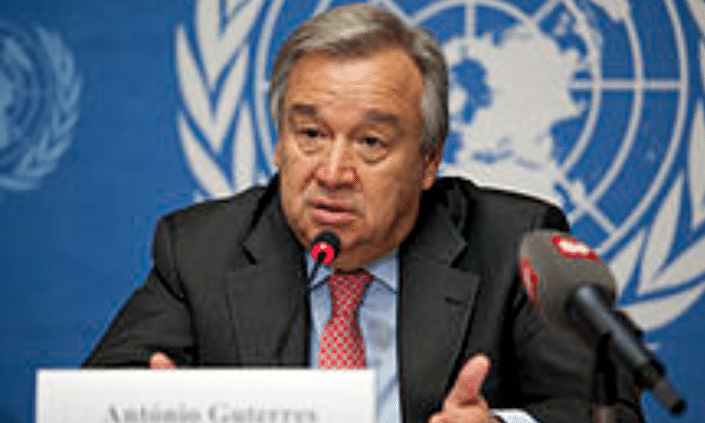EcoWatch
Climate Change: UN Warns That “Climate Bomb Is Ticking”

The United Nations (UN) Secretary-General, António Guterres, has asserted that the “climate bomb is ticking” as he stressed that the world must reduce carbon emissions by half by 2030 to combat climate change.
Guterres reportedly said this via a recorded address to the UN Intergovernmental Panel on Climate Change (IPCC).
In his address, the Secretary-General urged industrialized nations to commit to achieving zero net emissions by the year 2040.
Guterres also asserted that the pace of temperature increase over the past 50 years is the highest in 2000 years.
According to him, the levels of carbon dioxide are at their greatest point in at least two million years. The surroundings are a time bomb, he added.
The way forward
A “survival plan for mankind,” also published by Guterres, stated that “climate action on all fronts: everything, everywhere, at once” is necessary for the world.
A report that was made public on Monday consolidated the findings of three expert assessments that looked at the physical science, ramifications, and mitigation of climate change and were released between 2021 and 2022.
The summary report’s goal is to provide policymakers with information as they think about new emissions reduction strategies.
The IPCC members conducted nine years of research before it was published.
The 37-page preliminary report was put together over a week of meetings in Interlaken, Switzerland, using thousands of pages of earlier assessments.
At the COP28 climate summit this year, a global assessment of climate change and individual state contributions will be made using the 10,000-page research as a reference. As part of the 2015 Paris Agreement, nations must also update their climate commitments by 2025.
The forecast:
According to the IPCC, emissions must be cut in half by the middle of the 2030s if the world is to have any chance of limiting temperature rise to 1.5 degrees Celsius beyond pre-industrial levels, a crucial target outlined in the Paris agreement.
By the end of the century, the world is expected to have warmed by 3.2°C, and even if present promises are kept, temperatures might still climb by at least 2.2°C.
Extreme weather occurrences have increased globally due to average temperatures that are already 1.1 °C higher than levels between 1850 and 1900.












